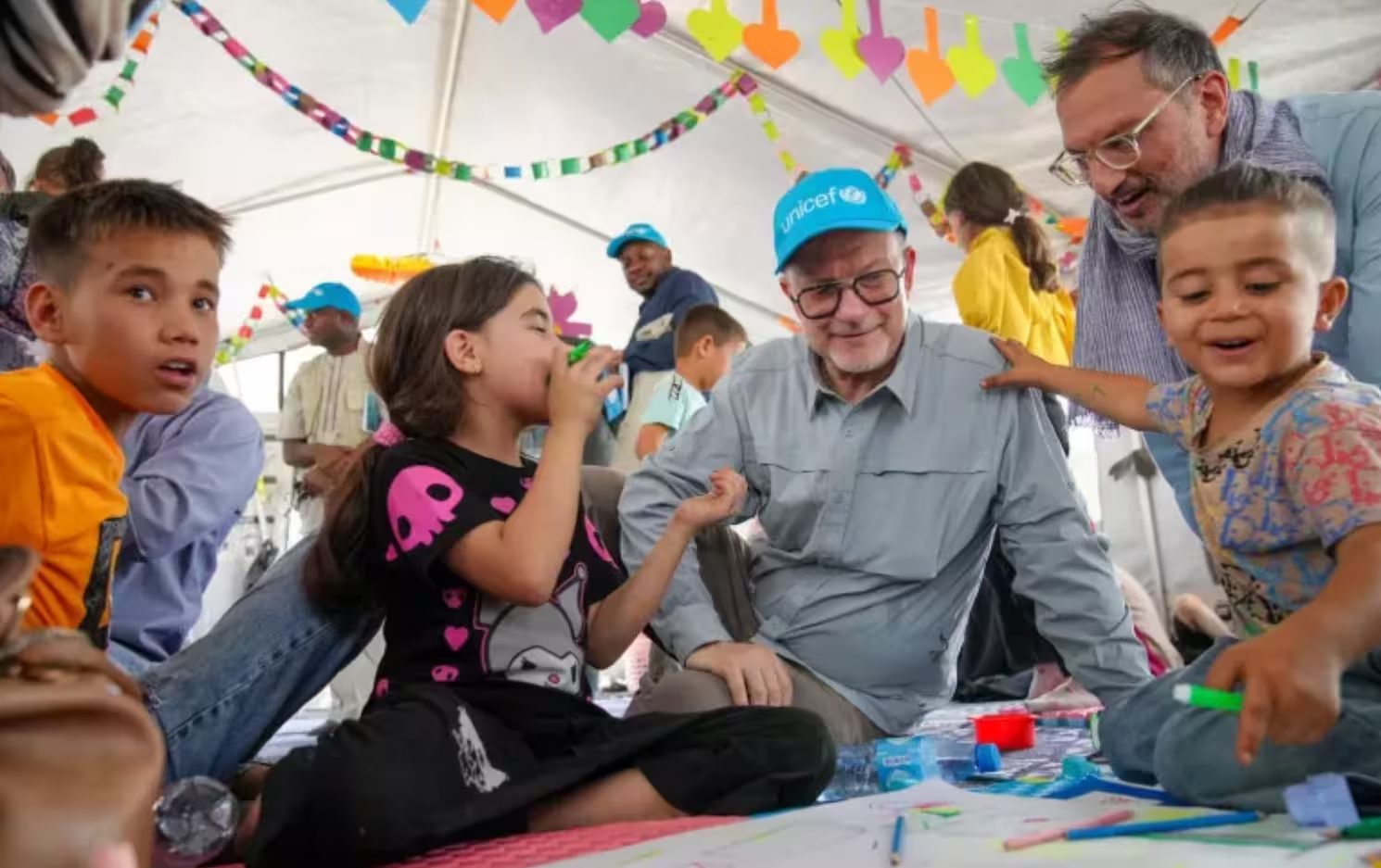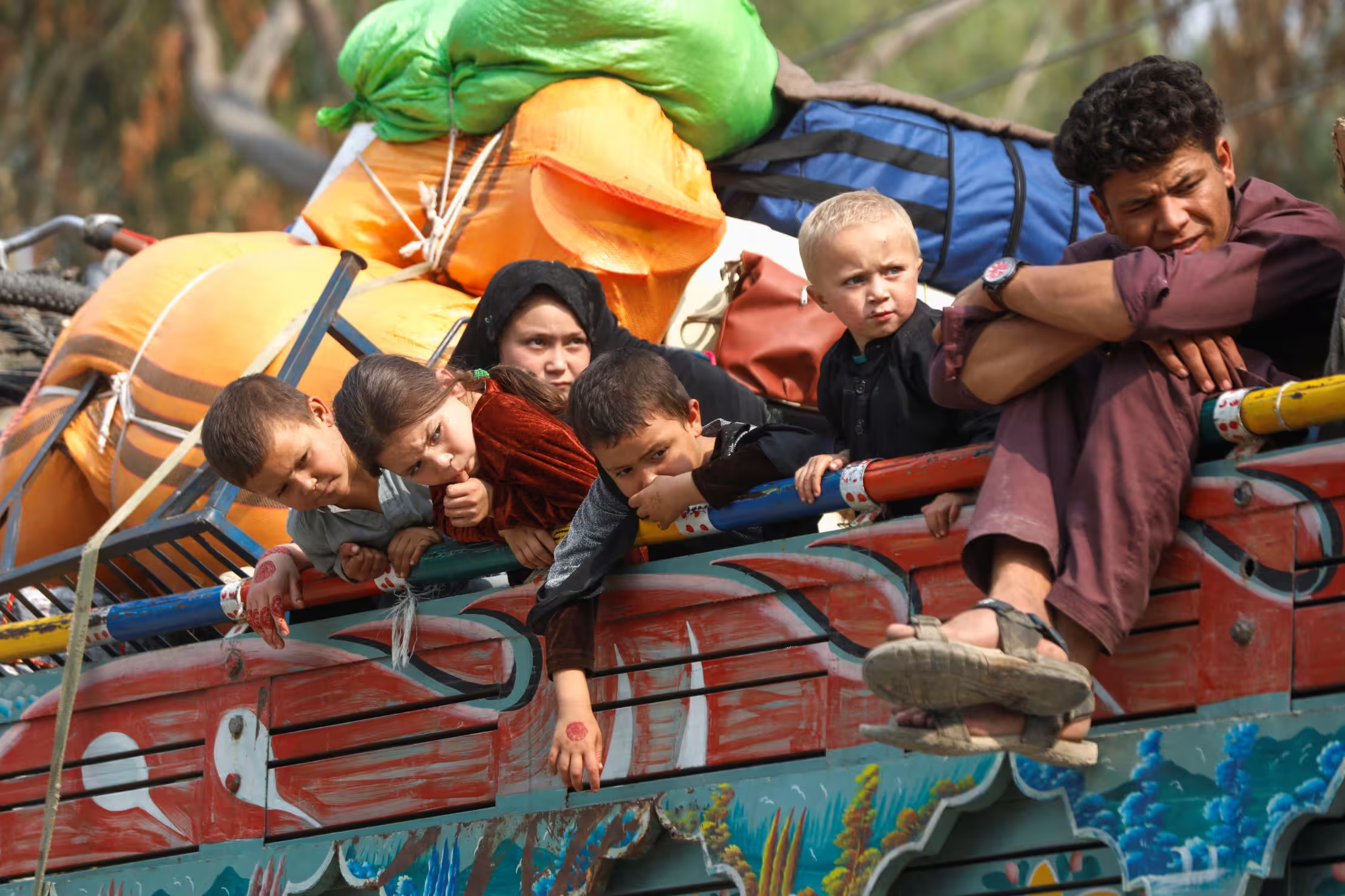UNICEF has called for a safe, dignified, voluntary, and phased approach to the large-scale return of Afghans from neighboring countries, as millions make their way back home amid mounting humanitarian challenges.

According to UNICEF, over 2mn Afghans — including around 500,000 children — have returned from Iran and Pakistan so far this year, alongside significant numbers from Central Asia. The agency warns that the pace of returns is putting severe pressure on already fragile communities in Afghanistan, where more than half the population needs humanitarian assistance.
A senior UNICEF official, concluding a fourth visit to the country, met with senior members of the de facto authorities, UN partners, donors, and civil society groups, and visited UNICEF-supported programs in Kunduz, Islam Qala, and Herat. Improved access across Afghanistan, the official noted, has enabled UNICEF to reach more children, women, and communities with essential services.
At the Islam Qala reception center on the Iranian border, tens of thousands of returnees are arriving daily. On July 4, arrivals peaked at over 50,000 in a single day. While families expressed hope for the future in Afghanistan, many voiced concerns about rebuilding their lives, particularly over the continuation of girls’ education beyond grade six.
Education remains a critical challenge. The ongoing ban on secondary education for girls means adolescent girls cannot attend school past grade six, excluding them from university and employment opportunities. In Kunduz, UNICEF officials visited an Accelerated Learning Class that helps girls complete primary school. One young teacher shared that she was just months away from finishing medical school before being barred from continuing her studies — a loss for women’s healthcare in Afghanistan.

UNICEF expressed gratitude to Iran and Pakistan for hosting Afghan nationals over the years but highlighted the hardships of sudden returns. The agency stressed that children — especially those unaccompanied or separated from their families — require special protection. By the end of July, UNICEF had reunited more than 6,000 unaccompanied or separated children with their families or relatives.
While rapid response measures have been rolled out at border points, UNICEF says more is needed to ensure safe passage, continued care during transit, and access to essential services in areas of return to support sustainable reintegration. Limited education, healthcare, and economic opportunities make it difficult for communities to absorb large numbers of returnees in a short period.
UNICEF is calling for:
- A systematic, phased return process to ensure safety, dignity, and voluntariness.
- Dialogue between Afghanistan, Iran, and Pakistan to better coordinate returns.
- Increased donor support for humanitarian assistance to returnee populations, particularly children, both at border reception centers and in final resettlement areas.
“Such an approach is especially critical for vulnerable groups – particularly women and children,” UNICEF said, urging the international community to act swiftly to protect the rights and well-being of those returning to Afghanistan.
Follow Daryo's official Instagram and Twitter pages to keep current on world news.
Comments (0)